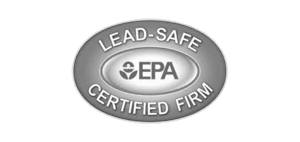When it comes to protecting your home from fire damage, prevention is key. By implementing fire safety measures, you can significantly reduce the risk of accidental fires and potential devastation. Here are some essential fire damage prevention tips that can help you safeguard your home and loved ones.
Key Takeaways:
- Regularly maintain smoke alarms and carbon monoxide detectors to ensure proper functioning
- Hire an electrician to inspect your electrical system and address potential issues
- Keep flammable items away from heat sources
- Practice safe cooking habits to reduce the risk of kitchen fires
- Develop and practice a fire escape plan with your family
Install Smoke Alarms and Carbon Monoxide Detectors
Protect your home from fire hazards by installing smoke alarms and carbon monoxide detectors. These fire safety devices play a crucial role in detecting and alerting you to potential dangers, giving you the necessary time to evacuate your home.
Ensure that you have smoke alarms installed in every bedroom, outside each sleeping area, and on every level of the house, including the basement. Interconnected smoke alarms throughout the home provide the most comprehensive protection.
For carbon monoxide detectors, place them in areas near bedrooms and fuel-burning appliances, such as gas stoves, furnaces, and fireplaces.
| Type of Alarm | Power Source | Benefits |
|---|---|---|
| Smoke Alarms | Battery, Hardwired, or Combination | Detect smoke before it becomes visible or smells and alerts you to potential fire hazards. |
| Carbon Monoxide Detectors | Battery, Hardwired, or Plug-In | Detects colorless, odorless carbon monoxide gas that can be fatal in high concentrations. |
Test your smoke alarms and carbon monoxide detectors regularly, replacing batteries every six months, and replacing the devices themselves every 10 years. By following these fire damage prevention tips, you can ensure your safety at home and minimize the risk of fire damage.
Practice Regular Electrical Maintenance for Fire Prevention
Regular electrical maintenance is an essential aspect of fire prevention in your home. Electrical malfunctions are one of the leading causes of residential fires. Therefore, it is essential to hire a qualified electrician to inspect your electrical system and address any potential issues.
Your electrical system must be up-to-date, safe, and efficient. Outdated electrical components, overloaded circuits, and faulty wiring are potential fire hazards. Regular maintenance ensures that your system is functioning correctly and can reduce the risk of electrical fires.
Some electrical safety tips to keep in mind:
- Do not overload electrical outlets or circuits.
- Replace damaged electrical cords immediately.
- Unplug appliances when not in use.
- Use extension cords only temporarily and never as a permanent solution.
- Do not run cords under rugs or carpets.
| Signs of Electrical Issues: | Actions to Take: |
|---|---|
| Frequently tripping circuit breaker or blowing fuses | Contact a qualified electrician to inspect your electrical system. |
| Warm, discolored, or sparking outlets or switches | Do not use the affected outlet or switch, turn off the power at the breaker, and contact a qualified electrician. |
| Burning smell or smokey odor | Turn off the power at the breaker and contact a qualified electrician immediately. |
By practicing regular electrical maintenance, you can significantly reduce the risk of electrical fires and ensure the safety of your home and loved ones.
Keep Flammable Items Away from Heat Sources
One of the most effective ways to prevent fire hazards and potential fire damage is to keep flammable items, such as clothing, curtains, and furniture, away from heat sources. Heat sources like stoves, heaters, and candles can ignite flammable materials and start a fire. Therefore, maintaining a safe distance between flammable items and heat sources is crucial.
Flammable items should be kept at least three feet away from heat sources, and heating equipment should be regularly inspected and cleaned to ensure it is functioning safely. Additionally, avoid using extension cords and power strips with heating devices and never drape flammable materials over them.
| Flammable Items | Safe Distance from Heat Source |
|---|---|
| Clothing | at least 3 feet |
| Curtains | at least 3 feet |
| Furniture | at least 3 feet |
In case of a fire emergency, having a fire extinguisher nearby can help contain the fire and prevent further damage. Make sure to read the instructions and know how to use a fire extinguisher safely and effectively.
Remember, keeping flammable items away from heat sources is an essential fire safety measure that can prevent fire hazards and potential fire damage to your home and loved ones.
Safe Cooking Habits: Preventing Kitchen Fires
Cooking is a common cause of residential fires, but with safe cooking habits, you can significantly reduce the risk of kitchen fires and potential fire damage to your home. Below are some essential tips to keep in mind:
- Never leave the stove unattended. Unattended cooking is the leading cause of kitchen fires. If you need to leave the kitchen, turn off the stove or have someone watch it for you.
- Use a timer for reminders. Timers are an effective way to stay on top of cooking times and avoid burning or overheating food.
- Keep flammable materials away from the cooking area. Flammable items like towels, potholders, and curtains should be kept away from the stove to prevent accidental ignition.
- Wear appropriate clothing while cooking. Loose clothing, dangling sleeves, and long hair can easily come into contact with hot surfaces or open flames, posing a significant fire hazard. Wear snug-fitting clothes and tie back long hair to avoid accidents.
By practicing safe cooking habits, you can significantly reduce the risk of kitchen fires and protect your home and loved ones from potential fire damage.
Implement Fire-Safe Practices in the Bedroom
Your bedroom should be a safe haven, and that includes fire safety. By following some simple fire-safe practices, you can ensure that your bedroom remains a secure place for sleeping and relaxing.
- Keep open flames away from the bed. This means no candles, no matches, and no smoking in bed. Open flames can quickly ignite flammable materials like bedding and clothing, putting you and your loved ones at risk.
- Develop a fire escape plan. Having a fire escape plan that includes multiple ways to exit your bedroom can help you evacuate safely and quickly in case of a fire. Make sure everyone knows how to get out and where to meet up after the escape.
In addition to these fire-safe practices, you should also regularly check that your smoke alarms are functioning correctly and that there are no electrical hazards in your bedroom. Remember, prevention is key in bedroom fire prevention and can make all the difference in keeping you and your family safe.
Maintain Outdoor Fire Safety
Outdoor fire safety is just as crucial as indoor fire safety, especially when you have a fire pit or regularly use a barbecue. To ensure your safety and avoid potential fire hazards, follow these fire damage prevention tips:
- Fire pit safety: If you have a fire pit, make sure to place it in a safe location that is away from any flammable materials such as bushes, trees, or outdoor furniture. Also, ensure that the fire pit is stable and cannot be knocked over easily. You can use sand or water to extinguish the fire when you’re done.
- BBQ safety: If you’re using a gas grill, check for leaks and make sure the connections are secure. Always keep the grill at a safe distance from your home and any flammable materials. If you’re using a charcoal grill, allow the coals to cool completely before disposing of them in a metal container. Remember never to leave your grill unattended.
Conclusion
Protecting your home and loved ones from fire damage should be a top priority. By implementing the fire damage prevention tips discussed in this article, you can significantly reduce the risk of potential fire hazards. Remember to install smoke alarms and carbon monoxide detectors, practice regular electrical maintenance, and keep flammable items away from heat sources, especially in the kitchen and bedroom. Additionally, developing a fire escape plan and practicing outdoor fire safety measures will help keep you and your family safe. Prevention is key when it comes to fire safety, so take the necessary steps to protect your home and loved ones today.
FAQ
What are some fire damage prevention tips to protect my home?
Some essential fire damage prevention tips include installing smoke alarms and carbon monoxide detectors, practicing regular electrical maintenance, keeping flammable items away from heat sources, practicing safe cooking habits, implementing fire-safe practices in the bedroom, and maintaining outdoor fire safety.
Why should I install smoke alarms and carbon monoxide detectors?
Smoke alarms and carbon monoxide detectors are crucial fire safety devices that can detect the presence of smoke and dangerous levels of carbon monoxide. They provide early warning signals, giving you valuable time to evacuate in case of a fire or carbon monoxide leak.
Why is regular electrical maintenance important for fire prevention?
Regular electrical maintenance helps identify and address potential issues such as faulty wiring, overloaded circuits, or outdated electrical components. By hiring a qualified electrician to inspect your electrical system, you can significantly reduce the risk of electrical malfunctions that can lead to fires.
How can I keep flammable items away from heat sources?
To prevent fire accidents, it is important to keep flammable items such as clothing, curtains, and furniture a safe distance away from heat sources like stoves, heaters, and candles. By maintaining this separation, you minimize the risk of accidental ignition and potential fire damage.
What are some safe cooking habits to prevent kitchen fires?
To prevent kitchen fires, it is important to practice safe cooking habits such as never leaving the stove unattended, using a timer as a reminder, and keeping flammable materials away from the cooking area. These precautions significantly reduce the risk of accidental fires and potential fire damage.
How can I implement fire-safe practices in the bedroom?
To prioritize fire safety in the bedroom, avoid having open flames near the bed, such as candles, and refrain from smoking in bed. Additionally, develop and regularly practice a fire escape plan with your family to ensure everyone knows how to evacuate safely in case of a fire.
How can I maintain outdoor fire safety?
Outdoor fire safety is crucial. If you have a fire pit or regularly use a barbecue, it is important to follow manufacturer guidelines, keep a safe distance from flammable materials, and never leave fires unattended. Properly extinguishing fires and practicing caution can help prevent accidental fires and potential damage.













